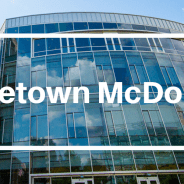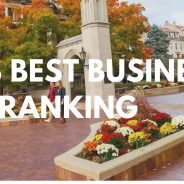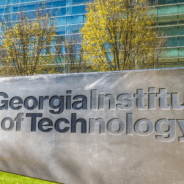Search results for career:
5 Questions with MBA Admissions: Georgia Tech Scheller College of Business Executive MBA
In our latest installment of the MetroMBA “5 Questions” series, we speak with Lael Whiteside, Executive MBA Recruiting Manager, from the Georgia Tech Scheller College of Business. Whiteside talks about the advantages of their Executive MBA and the ‘typical student profile’ among other hot topics.
How does this program differentiate from other offerings at your school and other programs in the EMBA space?
Since it was founded in 1885, Georgia Tech has been at the forefront of technology and innovation. The Executive MBA program at Scheller College of Business is no exception, bringing together top business leaders with innovative ideas and technological advancements. Our students learn to solve complex problems, gain helpful analytical skills, and take on leadership roles to foster team dynamics. All of the skills developed in the classroom over the weekend can be applied when you set foot back at work on Monday.
What is the typical profile of a student who would benefit most from this program and what characteristics are your admissions team looking for?
A common myth among applicants is that you have the be an “executive” to apply to an executive MBA program. Most students in the EMBA program average 10 to 15 years of work experience and bring a wealth of knowledge from a variety of industries and functional areas into the classroom. Those who benefit most from this program are looking for innovative ways to approach their careers and find new ways to challenge the status quo. As far as characteristics, the admissions team places value in a prospective student’s leadership abilities, willingness to tackle complex problems and/or challenges, desire to progress in their career and in their academics, and in their initial goal or purpose in pursuing an MBA, as well as their ability to work well in a team environment.
How does your school assist with career services and how does your program enhance a student’s profile as a job applicant?
The mission of Executive MBA Career Services is to ensure that prospective students are provided with the coaching, the resources, and the tools to support them in proactively managing their career. Whether they plan to progress within their current organization, change your direction, or consider an entrepreneurial route, the career management skills we share are instrumental in enhancing their marketability.
What is one insider tip you can provide prospective applicants about applying to the Georgia Tech Executive MBA?
I would say that a prospective applicant should make use of the optional consultations offered by the program to help them determine if an MBA makes sense for their career and what they are trying to accomplish. They should also make sure they understand the Executive MBA format and curriculum before submitting their online application.
If you had to choose one book for a potential GT Scheller EMBA to read before enrolling, what would it be?
“Start with Why” by Simon Sinek. Challenging the way you view a problem is the main focus of Sinek’s book, and that’s exactly what earning an MBA will do for you as well. Sinek compares leaders and organizations that have disrupted industry by asking one question: Why? Earning your MBA will challenge you to view problems from a new point of view and find innovative solutions to tackling today’s business challenges.
Clear Admit Podcast featuring Georgetown’s Flex MBA
In this Clear Admit podcast episode, we explore a particular format for management education, rising in popularity: The Flex MBA. Traditionally, a full-time MBA program is residential, takes place over two years and has an established academic calendar. So, when it comes to a Flex MBA, is it part-time, full-time, online, in-class? Special guest, Shelly Heinrich, associate dean of MBA Admissions and director of marketing at the Georgetown McDonough School of Business, joins Clear Admit’s Graham Richmond for a discussion about the format and fit of the Georgetown Flex MBA program.
At McDonough, Heinrich leads the MBA admissions team in both its marketing and operational strategy to build awareness, recruit, yield, and retain the Full-time and Flex MBA programs. She also develops their integrated marketing strategy and manages teams in its execution. Heinrich received a master’s degree in education from the University of Texas at Austin and a bachelor’s degree in business administration from Texas Christian University. She recently completed a certificate of marketing from Georgetown University and the Executive MBA Program in the McDonough School of Business.
Tune in below for her insights into Flex MBA programs, what makes them special, and why they may be the perfect fit for you. Happy listening!
Read More: Georgetown Launches Flex MBA Program
This Clear Admit podcast episode is brought to you by Georgetown McDonough School of Business. You already know you’re capable of greatness, but wondering just how much you can achieve isn’t enough. To truly have an impact on the world, you have to go find out exactly what you’re made of. It’s what sets the doers apart from the merely curious. With a curriculum designed to prepare you for the global stage, plus access to all Washington, DC has to offer, Georgetown’s McDonough School of Business is the perfect launchpad for your career. Get started at choosegeorgetown.com/mba
Introduce yourself to Georgetown
Fill out the form below to get connected with Georgetown. By entering your information, you consent to having your contact information shared with Georgetown's MBA Admissions OfficeIf You Like What You’ve Been Hearing, Please Subscribe and Rate Us on iTunes!It’s been wonderful seeing the audience for our podcast series continue to grow! Please, if you have enjoyed what you’ve heard, could you rank the Clear Admit MBA Admissions Podcast in iTunes? That can really help even more listeners find us. To ensure that you never miss an episode, you could even subscribe.
This episode was hosted by Graham Richmond, and produced by Alex Kelly. Thanks to all of you who’ve been joining us! One more time: Ranking us in iTunes can help others find us, too, and subscribing means you’ll never miss a Clear Admit podcast.
Top MBA Recruiters: Bank of New York Mellon
If you’re interested in the world of investment, look no further than the Bank of New York Mellon (BNY). Founded in 1784, BNY Mellon is based in New York City, one of the financial capitals of the world.
It’s a great place to build a career, and with nearly $2 trillion in assets, BNY Mellon has plenty to offer MBA graduates and students. Find out about the work culture, benefits, and all that this company has to offer to find out if it’s the right fit for you.
About Bank of New York Mellon
This investment company might be based in New York, but it’s global. So for those of you with dreams of living in India or Israel, you’re in luck. BNY Mellon has locations around the world for both customers and employees. Approximately 51,300 people work for the company, and they don’t all specialize in financial management.
All types of MBA students and graduate may find a role in this global banking institution. The U.S.-China trade war hasn’t been helping the company’s profits too much, but with more than 200 years of experience under its belt, BNY Mellon is sure to bounce bank.
Working at Bank of New York Mellon
This definitely isn’t a place for the faint of heart. Working at this company requires serious work and commitment. One of the employees profiled on BNY Mellon’s company page is sure to note that you’re among the best of the best, and everyone is out here doing the most.
“The most rewarding part of my job is that every day presents a new challenge and I never feel that my work is repetitive. It is exciting to come into work every day not knowing what to expect, and I can feel confident that my team values my contribution.” – Cody, associate in BNY Mellon’s Emerging Leaders Program
The company also appears to take career mobility and well-being seriously. So, all that hard work should eventually earn you a promotion and a raise. And it shouldn’t come at the cost of your health. BNY Mellon even won an award in 2017 for its healthy lifestyle!
People of color should feel welcome, too, as the company prides itself on its efforts toward improving diversity and inclusion. Though only 34 percent of its U.S. workforce are people of color, 42 percent of new hires based in the U.S. are people of color. That shows some progress, which is impressive for such a giant corporation.
Current job openings include:
- Specialist, ALM Liquidity – Vice President
- Sr. Wealth Strategist
- Lead Analyst, Client Service
- Specialist, Treasury and ALM
- Spec, Tech Risk Mgmt
BNY Mellon Salary and Benefits
Now, time for the real talk. How’s the money look? Well, the average salary is $71,000, according to Payscale. However, reach the vice president level or go into information technologies, and your salary is likely to double closer to $140,537.
BNY Mellon offers parental and family leave, as well as flexible work arrangements. And, of course, there are the basics: health insurance, retirement planning, and paid time off.
Applying to Join Bank of New York Mellon
- Take the BNY Mellon Career Quiz
- See what job openings are available within your results
- Apply!
Read up on tips for interviewing with the company.
5 Questions with MBA Admissions at George Mason University’s School of Business
In our latest installment of the MetroMBA “5 Questions” series, we speak with Pallab Sanyal, an associate professor of information systems and director of MBA Programs at George Mason University’s School of Business. Sanyal talks about the culture of the university, the type of students who fit best, advice for admission, and the accessibility of professors.
1. How would you describe the culture of George Mason University?
As a top-tier R1 public research institute, we are constantly pushing for innovative business with purposeful impact. Businesses today are no longer only looking at the bottom line, they are tackling society’s challenges with business solutions. With support centers like the Center for Innovation & Entrepreneurship and Center for Government Contracting, we create spaces for changemakers, creativity, and cross-disciplinary collaboration.
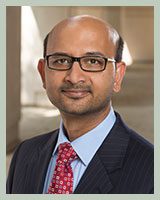
We pride ourselves on empowering innovation, which is often enriched by our diversity. Last year, in addition to being ranked as Virginia’s most diverse and most innovative university (among national institutions), George Mason University was also ranked as one of the most diverse and innovative universities in the nation (U.S. News & World Report). Our students carry this spirit into our program life, organizing events such as the annual MBA Industry Summit, hosted by the School of Business MBA Student Association, and Power Dinners. Business leaders from companies such as Salesforce, UiPath, and the National Security Agency attend as panelists or guest speakers, sharing their expertise, discussing the latest industry trends, and networking with program students.
2. What type of student is the best fit for either the on-campus or online MBA programs?
Both programs are great for anyone with a curious mind and the willingness to work hard, but whether you’d prefer our on-campus or online program depends on what type of flexibility you’re looking for and how you learn best.
The on-campus program, ranked No. 32 Best Part-Time MBA Program (U.S. News & World Reports) as of 2019, is tailored for working professionals, offering evening classes in two metro-accessible locations. In fact, most of our on-campus MBA students are full-time working professionals. Our on-campus MBA also offers the flexibility to complete in as few as 20 months, or as long as 5 years.
If you are looking for more flexibility in terms of location and class time, the online program is a great option. Our online program offers the same academic curriculum, including the option for a global residency course and experience, however, it is intended to be completed in 33 months.
3. If there were just one piece of advice you could give to an MBA applicant considering George Mason University, what would it be?
The first piece of advice would be to be yourself in your essay and admissions process because we want to get to know you! We also encourage you to share how your education and experiences would not only enable you to succeed in the program, but also enable you to contribute in the classroom. Collaborative communication and leadership are two of the learning goals for this program. We believe they are critical to develop as you embark on your life-long career journey.
Think about how your unique perspective can enrich the program setting, whether that is in class, during program events, or during the global residency. Talk to current students, alumni, faculty, and staff to understand how our community can benefit you, and how you see yourself engaging with us.
4. How accessible are George Mason University professors? Do they frequently serve as mentors?
We keep our class sizes small, providing our students with more personal interaction time with professors. Instructors have office hours available for our on-campus and online students. The quant-heavy courses include free tutoring as well.
For the online MBA, aside from asynchronous communication, professors also host synchronous sessions dedicated to Q&A time with students.
5. Where’s the best coffee shop for studying and hanging out on or off-campus?
We have plenty of study lounges across the Arlington campus: on the 4th floor, in the library, and in or near Founder’s Hall. That said, Clarendon is one metro stop away and within walking distance. You can find a multitude of cafes in Clarendon! Some favorites are Northside Social, Uptown Café (where students get a discount), Detour, Coffee + Juice.
In addition, our Fairfax campus has two Starbucks locations, Panera Bread, Einstein Bros. Bagels, Dunkin’ Donuts, Au Bon Pain, and plenty of other spaces to gather, study, or eat.
5 Questions with MBA Admissions: Georgia Tech Scheller College of Business Evening MBA
In our latest installment of the MetroMBA “5 Questions” series, we speak with Christopher Hilario, Evening MBA Recruiting Manager, from the Georgia Tech Scheller College of Business. Hilario talks about the advantages of their evening MBA, the “perfect” kind of candidate and priorities before applying.
What Advantages Does a Georgia Tech Scheller College of Business Evening MBA Have Compared to Other Offerings in Georgia?
When I think about the competitive advantages our Scheller Evening MBA students have over other programs, two things jump to the front of my mind: career services and practicum courses.
For instance, if you’re looking to pivot into a new industry, an MBA degree itself may not get you to your career goal. You’re going to need some help along the way, and it starts with our career services team. The Jones MBA Career Center is ranked #3 in the US, and it’s because of the dedication we provide our students. Once you enroll into our Evening MBA program, you’re assigned a career advisor who will want to meet with you during your first semester. They will discuss your career goals, look at your work experience, and identify where you want to be by the time you graduate. Throughout the program, you’ll have the opportunity to attend a number of career advancement workshops, mock interviews, and information sessions with companies recruiting MBA students. Students in the Evening Program have their own dedicated career advisors who are there to ensure Evening MBAs get the highest return on investment.
For the person looking to pivot into a new industry, our career services will help you land the interview. But what are your talking points for that interview? That’s where our MBA curriculum, specifically our practicum courses, go to work for you. Our presence in the heart of Tech Square and Midtown gives us the opportunity to partner with nearby startups, nonprofits, and Fortune 500 companies. We partner with these organizations for practicums – courses where students work on a real strategy issue for a reputable company. Our students work on these projects all semester and have the ability to solve real challenges that major companies face today. Not only will this give you practical experience as you look to pivot into a new industry, but the practicum provides you with great talking points during an interview. We offer 12 different practicum courses that vary across disciplines, including business analytics, sustainability, and nonprofit consulting. On average, our students take advantage of four practicums during their time in the program. These courses allow you to state that not only do you have an MBA degree, but that you were able to immediately apply what you learned in the program.
Our career services will help you get the interview, and our curriculum will provide you with the content that will separate yourself from candidates with MBAs from other programs.
Is There a “Perfect” Kind of Candidate That Fits the School’s Evening MBA Mold?
The “perfect” kind of candidate for the Evening MBA program is one who is willing to immerse themselves into the collaborative community we foster here at the Scheller College of Business. We want someone who is going to take advantage of the networking opportunities, guest lecturers, and student-led organizations. Notice how I didn’t mention a candidate’s specific industry or undergraduate degree? Some prospective students believe they have to have an engineering or computer science background to be successful in an MBA program at Georgia Tech, but that’s not the case. The Evening MBA program is comprised of students from varying backgrounds, disciplines, and experiences. We want a diverse classroom that will be representative of what students come across in their day-to-day jobs. It doesn’t matter if you are looking to pivot into a new industry or move up the ladder within your current organization. As long as you are open-minded and are willing to get involved with the MBA community, then you’re the “perfect” candidate we are seeking at the Scheller College of Busines
What Would You Say Students Need to Prioritize the Most Before Applying?
Schedule a meeting with a member of our admissions team. During this conversation, we take a look at your resume, assess your candidacy for our program, and discuss how you can improve your application. It’s pretty much like getting the answer key before you take an exam! We have no hidden algorithm or secrets when we assess a candidate. At the end of the day, we are looking for a reason to invite you for an interview once you submit an application. Make an appointment with our team, and it will help ease any worries you may have going through the admissions process
What Would You Say Applicants Need to Worry Less About Before Applying?
Don’t get stressed over the interview process. Once we review an applicant, if we feel that they are competitive, then we will invite them on campus for an interview. The admissions committee found a reason to invite you, so now is your time to shine. I would suggest preparing like you would for a typical to job interview but know that our interviewers are not intimidating people by any stretch of the imagination and they truly are interested in getting to know you.
If You Had to Choose One Book for a Potential Georgia Tech Scheller Scheller College of Businses Evening MBA to Read Before Enrolling, What Would It Be?
I could give you a book on leadership/management (Dare to Lead by Brené Brown would be my pick), but honestly, you’re going to read enough books, case studies, and articles once you enroll, so enjoy this time to read something you love. My personal favorite is City of Thieves by David Benioff. It’s a historical fiction novel that is a classic coming-of-age story set in the Soviet Union during World War II. Benioff was actually one of the writers on Game of Thrones, but don’t let that ending hinder you from checking out his book!
U.S. News & World Report Best Business Schools Rankings: Part-Time MBA
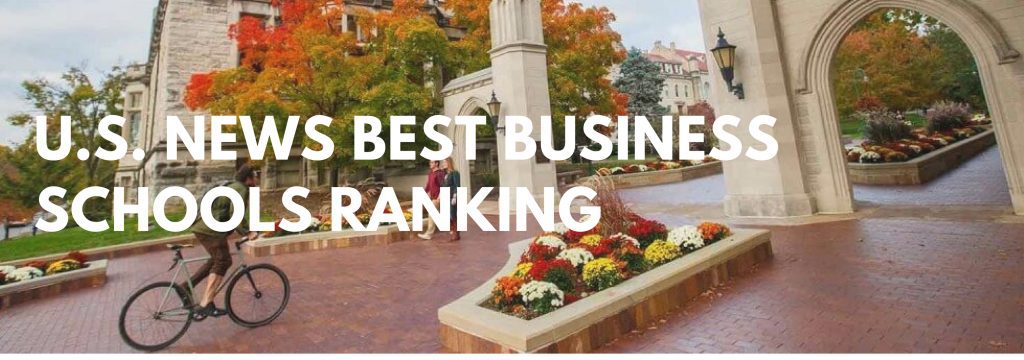
U.S. News & World Report offers one of the world’s most comprehensive school ranking systems available, highlighting hundreds of business schools in the United States. The annually released ranking organizes school programs according to peer and recruiter assessment, career success, and GMAT/GRE scores into a weighted average.
Part-Time MBA Rankings
| Rank | School |
|---|---|
| 1 | University of Chicago (Booth) |
| 2 | University of California--Berkeley (Haas) |
| 3 | Northwestern University (Kellogg) |
| 4 | New York University (Stern) |
| 5 | University of California--Los Angeles (Anderson) |
| 6 | University of Michigan--Ann Arbor (Ross) |
| 7 | University of Minnesota--Twin Cities (Carlson) |
| 8 | University of Texas--Austin (McCombs) |
| 9 | Carnegie Mellon University (Tepper) (PA) |
| 9 | Emory University (Goizueta) (GA) |
| 9 | Indiana University (Kelley) |
| 12 | Georgetown University (McDonough) (DC) |
| 12 | University of Washington (Foster) |
| 14 | Ohio State University (Fisher) |
| 14 | University of Southern California (Marshall) |
| 14 | Virginia Tech (Pamplin) |
| 17 | Georgia Institute of Technology (Scheller) |
| 17 | Rice University (Jones) |
| 17 | University of Massachusetts--Amherst (Isenberg) |
| 17 | University of Texas--Dallas |
| 17 | Washington University in St. Louis (Olin) |
| 22 | Arizona State University (W.P. Carey) |
| 22 | Case Western Reserve University (Weatherhead) |
| 22 | Santa Clara University (Leavey) |
| 22 | University of Iowa (Tippie) |
| 22 | University of South Carolina (Moore) |
| 22 | University of Wisconsin--Madison |
| 28 | Boston College (Carroll) |
| 28 | University of California--Davis |
| 30 | University of Maryland--College Park (Smith) |
| 30 | Wake Forest University (NC) |
| 32 | George Mason University (VA) |
| 32 | University of California--Irvine (Merage) |
| 32 | University of Florida (Warrington) |
| 35 | Lehigh University (PA) |
| 35 | University of California--San Diego (Rady) |
| 35 | University of North Carolina--Charlotte (Belk) |
| 35 | University of Richmond (Robins) (VA) |
| 35 | Villanova University (PA) |
| 40 | Boston University (Questrom) (MA) |
| 40 | Loyola University Chicago (Quinlan) (IL) |
| 40 | Rutgers, The State U. of New Jersey--Newark and New Brunswick |
| 40 | Southern Methodist University (Cox) |
| 44 | DePaul University (Kellstadt) |
| 44 | Gonzaga University (WA) |
| 44 | University of Colorado--Boulder (Leeds) |
| 44 | University of Utah (Eccles) |
| 48 | Georgia State University (Robinson) |
| 48 | Marquette University (WI) |
| 48 | Texas A&M University--College Station (Mays) |
| 48 | University of Pittsburgh (Katz) |
| 52 | Loyola Marymount University |
| 52 | Pepperdine University (Graziadio) |
| 52 | University of Arizona (Eller) |
| 52 | University of Georgia (Terry) |
| 52 | University of Oklahoma (Price) |
| 57 | Bradley University (Foster) |
| 57 | Florida State University |
| 57 | Fordham University (Gabelli) |
| 57 | North Carolina State University (Poole) |
| 57 | Oregon State University |
| 57 | Purdue University--West Lafayette (Krannert) (IN) |
| 57 | Seattle University (Albers) |
| 57 | Virginia Commonwealth University |
| 65 | Oklahoma State University (Spears) |
| 65 | Old Dominion University |
| 65 | University of Alabama--Birmingham |
| 65 | University of Connecticut |
| 65 | University of Houston (Bauer) |
| 65 | University of Illinois--Chicago (Liautaud) |
| 65 | University of Illinois--Urbana-Champaign |
| 65 | University of Kansas |
| 65 | University of Washington--Tacoma Milgard |
| 74 | CUNY Bernard M. Baruch College (Zicklin) |
| 74 | Rutgers, The State University of New Jersey--Camden |
| 74 | Tulane University (Freeman) |
| 74 | University of Colorado--Denver |
| 74 | University of Delaware (Lerner) |
| 74 | University of Minnesota--Duluth (Labovitz) |
| 74 | University of New Mexico (Anderson) |
| 81 | Clemson University |
| 81 | Creighton University (Heider) |
| 81 | Iowa State University |
| 81 | Kennesaw State University (Coles) |
| 81 | Miami University (Farmer) |
| 81 | San Diego State University (Fowler) |
| 81 | St. Joseph's University (Haub) |
| 81 | University of Kentucky (Gatton) |
| 89 | Butler University |
| 89 | Elon University (Love) |
| 89 | Fairfield University (Dolan) |
| 89 | Illinois State University |
| 89 | The Citadel (SC) |
| 89 | University of Central Florida |
| 89 | University of Colorado--Colorado Springs |
| 89 | University of Wisconsin--Milwaukee (Lubar) |
| 89 | Wichita State University (Barton) |
| 89 | Xavier University (Williams) |
| 99 | Babson College (Olin) |
| 99 | Bentley University |
| 99 | College of William and Mary (Mason) |
| 99 | George Washington University |
| 99 | Northeastern University |
| 99 | Texas State University (McCoy) |
| 99 | University of Nebraska--Omaha |
| 99 | University of North Texas |
| 99 | University of Rochester (Simon) |
| 99 | University of South Florida |
Top 5 Companies MBAs Should Work for in the Airline Industry
While some of us prefer to simply ride in planes, others opt to build careers out of these miraculous machines. And that includes MBA students and graduates. The aviation industry is projected to grow as air travel is set to increase. The top airline companies for MBA graduates offer a variety of job opportunities to expand your career.
The climate crisis threatens to create obstacles for this industry as governments debate how to reduce greenhouse gas emissions, but there will still be room for air travel so long as the industry modernizes to fit into a more sustainable world—and MBAs have the potential to resolve this grand dilemma.
Here are five airline companies that might just be a good fit for MBA students and graduates seeking to build a career out of the airline industry. The employment opportunities for those in this field include jobs in finance, informational technologies, and management. Find out what might work for you.
List of the Top Airline Companies for MBA Graduates
1. SkyWest Airlines
SkyWest works in partnership with some of the airlines you’re likely more familiar with: Delta, American, and United. The Utah-based company is pretty small: It employs more than 14,000 aviation professionals, but it’s worth nearly $3 billion, according to Macrotrends.
Most importantly, Glassdoor chose this company as the best place to work in 2020. It was the only regional airline to make the list.
“SkyWest’s success can be directly connected to the incredibly talented group of people we have working here,” said SkyWest CEO and President Chip Childs, in a statement. “This award is a credit to each of them for the teamwork and passion they demonstrate in taking care of millions of passengers every month across the country.”
Open positions here include a crew support operations coordinator.
2. American Airlines
If name recognition is what you’re going for, American Airlines has got something to offer. This airline offers a program for MBA graduates called the “American Airlines MBA Leadership Pipeline.”
This program is a chance for MBAs to join the company’s 110,000 other employees. How? The program offers two entry points for business grads: commercial strategy or financial strategy. Depending on whether generating revenue is your thing or you prefer conducting labor analyses, you choose your strategy. You can apply for a full-time job or get your feet wet with an internship. The perks are pretty impressive even for interns: lunch and learns with senior vice presidents, unlimited non-revenue travel, and 10 days paid uninterrupted travel after completing the internship. I guess working for an airline has got its travel bonuses.
The average salary here is $70,349, according to Payscale.
3. AirAsia
AirAsia may be known for its affordable flights, and it’s doing a lot to create commendable work opportunities for MBAs. In fact, the Malaysian-based company has roles for those with an interest in data or risk management.
According to Glassdoor, most employees here would recommend a job to a friend and approve of the CEO. CEO Tony Fernandes has come under recent fire for alleged bribery, but it still saw growth last year due to an increase in passengers.
Current job openings include:
- Junior Legal Counsel
- QA Engineer, Software Development
- Head of Ad Operations
4. Delta Air Lines
Delta’s been called one of the best places to work at. The Atlanta-based company has a value of $38.1 billion and 89,000 employees. The salary is not shabby: The average is $82,598 a year, according to Payscale. In addition, what people seem to like most about the job, however, are the flight benefits. If you like to travel, this just might be worth it for you to jump into aviation. And Delta has been in the game for a while—since 1924.
5. United Airlines
Chicago-based United Airlines has been deemed one of America’s best employers by Forbes. The aviation industry definitely seems to be making its employees happy. Employees at this company approve of the CEO and would recommend a friend to work here, according to Glassdoor.
Benefits here include, per Glassdoor:
- Medical insurance plans including vision, dental, and long-term disability
- Professional development seminars
- Paid time off and sick days
- Unlimited standby travel
The average annual salary here is $74,847.
So is the aviation industry where you want to take your career? It’s definitely got something to offer everyone.
YOU MAY ALSO LIKE: THE TOP MBA EMPLOYERS
5 Questions with MBA Admissions: Zicklin School of Business at Baruch College
In our latest installment of the MetroMBA “5 Questions” series, we speak with Helaine J. Korn, the executive director of Graduate Programs and professor at the N.P. Loomba Department of Management and Zicklin School of Business at Baruch College. Korn talks about where the school’s graduates have gone on to and what to expect from other students in the program.
1. What do MBA graduates walk away with from Baruch that is unique?
Baruch College’s Zicklin School of Business graduates will walk away having worked harder than their counterparts at other local schools with a sense of perseverance and ability to overcome the underdog mentality. They will have received a cost-effective education from a top school in NYC while accumulating little to no debt and having made significant strides in social mobility.
2. Where have graduates gone to work?
Zicklin graduates can be found in just about every bank and financial institution throughout NYC. They work in a variety of functions including consulting, financial/accounting, marketing/sales, information technology, and operations/logistics, among others. They work in a variety of industries including consulting, consumer products, financial services, government, and technology, among others. Some of the top companies that employ Zicklin graduates are CohnReznick, Deloitte, JetBlue Airways, City of New York, JPMorgan Chase, and EY.
3. What’s the spot to dine around campus?
Taza Deli at 25th Street and Park Avenue South
Didi’s Dumplings at 23rd Street and Lexington Avenue
Pret a Manger
Popeye’s Chicken at 26th Street and Lexington Avenue
4. How would you describe students in the program?
Friendly, welcoming. Diverse in terms of nationality, career backgrounds, and career aspirations. Unpretentious and motivated.
5. How do Baruch MBA candidates at Zicklin Business balance class and the bustle of NYC?
MBA candidates have largely chosen to study at Baruch’s Zicklin School of Business precisely because it is in NYC. They take advantage of NYC being a place to meet people and network across a wide variety of industries. Numerous events and speakers on campus bring opportunities to explore all facets of business.
MBA candidates appreciate the access to internships and top job possibilities. They embrace being in NYC for the great possibilities for serendipitous encounters both personally and professionally.
Some MBA candidates learn to treat school like a job, putting in set hours for study and using other times to enjoy all NYC has to offer.
5 Questions with Queen’s University’s Full-Time MBA Admissions
In our latest installment of the MetroMBA “5 Questions” series, we speak with Teresa Pires, the associate director of recruitment for Queen’s University’s full-time MBA program at the Smith School of Business. Pires talks about what sets Queen’s University apart, the coolest spot on campus, and more.
1. What makes this MBA program different than the rest?
The Smith Full-time MBA can be completed in just 12 months, meaning students are only out of the workforce for one year. The program’s January start also means that graduates will be among the first into the job market and have more time to prepare for interviews in the fall.
Students are drawn to our amazing alumni network of more than 25,000 worldwide, which they benefit from during the program and throughout their careers. MBA students also receive extensive, personalized attention from our dedicated career advancement team, including workshops, one-on-one coaching, and networking opportunities with key corporate partners.
Smith is proud to offer Canada’s best career outcomes with 95 percent of the 2019 class receiving an offer within three months of graduation.
Smith’s full-time MBA offers a small class size of 91 students and consistently attracts a diverse cohort which reflects the reality of today’s working environment. This year’s class is 44 percent women and includes students from 17 countries around the world.
2. Who would make an ideal candidate for this program?
While there isn’t one ideal candidate, we assess candidates based on their intellectual abilities (strong GPA and GMAT/GRE), coach-ability, and team-based experiences, interpersonal skills, work ethic, and resilience.
3. Who’s one professor that MBA candidates absolutely have to connect with?
Accounting professor Len Anderson has won the teaching award every year he’s taught in the MBA program and is routinely appreciated by students for bringing a fresh, fun, and passionate approach to the subject.
4. What’s the coolest part of the campus?
The Queen’s Athletics & Recreation Centre is impressive. Having Starbucks in the building is convenient, and students also enjoy being close to downtown. Kingston’s waterfront is amazing for socializing, relaxing, and studying. It is not only beautiful, but also lively during the summer and spring months.
5. What can MBA graduates hope to take from this program as they enter the business world?
Students take away a more enhanced understanding of business concepts and cultural intelligence through working in real world business scenarios. They become better leaders through the team-based model, and they gain exceptional technical skills with our experiential learning methodologies that help them to develop best practices to network effectively and secure top positions for great companies.
Top U.S. Schools That Don’t Require the GMAT/GRE
Applying to a full-time MBA program without a GMAT or GRE is hard to come by for the world’s best MBA programs. Most top U.S. business schools require a competitive GMAT/GRE score to be considered for admissions. However, due to COVID-19, there are a number of top schools that do not require the GMAT or GRE by offering GMAT/GRE waivers.
If you are an MBA candidate who’s not great at taking tests or earned a low GMAT score, don’t worry; you’re not out of luck. There are five programs in the U.S. that will accept your MBA application without the GMAT/GRE, as long as you meet certain specific other requirements.
These are the top U.S. schools that don’t require a GMAT/GRE.
The University of Virginia – Darden School of Business
At the Darden School of Business for select candidates, a standardized test may not be necessary. As a pilot for the 2020-21 application cycle (for the Class of 2023), Darden announced a standardized test (GMAT/GRE) waiver request.
For some candidates, particularly those who meet several of the criteria outlined below, a test score may not be needed for the Darden Admissions Committee to assess their preparedness.
Waiver requests will be evaluated on a case-by-case basis, and the Darden Admissions Committee will consider a number of factors when evaluating these requests. Particular regard will be given for indicators of academic and professional accomplishment, including but not limited to:
- A strong undergraduate and/or graduate record, including performance in analytical coursework or disciplines
- CPA or CFA designation or other professional certification
- Master’s or advanced degree in an analytical discipline
- Seven or more years of progressive, professional work experience in an analytical field
- Strong performance on a U.S. college admissions test (SAT or ACT) or a national exam administered for admission to bachelor’s study in other countries
These factors will be considered in combination with resume and transcripts for all degree-related coursework. Candidates who present a strong profile across several criteria (including supporting materials) are more likely to be granted a test waiver than candidates who meet only one criterion.
Candidates who believe they may qualify for a test waiver on the basis of the above criteria should submit a test waiver request.
Indiana University – Kelley School of Business
The Kelley School of Business Full-Time MBA program admits high-potential applicants for their academically rigorous curriculum. Kelley typically requires the GMAT or GRE as one demonstration of quantitative and analytic capability. In light of the recent challenges associated with taking standardized tests due to COVID-19, candidates may apply for a waiver of this requirement and submit other evidence of their academic qualifications. Kelley anticipates awarding GMAT/GRE waivers for a small percentage of their incoming class. In evaluating waiver requests, Kelley considers many factors, including rigor and achievement from previous undergraduate and graduate degrees, evidence of work experience requiring analytical and quantitative skills, and post–bachelor’s degree career growth including demonstration of leadership.
To request a GMAT/GRE waiver, you must complete the following two steps:
- Complete and submit the Kelley online information request form (to ensure that we have your most current contact information); and
- Submit via email (iumba@indiana.edu) a current professional resume, your unofficial or official undergraduate transcripts (and graduate school transcripts, if applicable), and a brief statement (500 words or less) summarizing why you believe you qualify for a waiver.
The University of North Carolina – Kenan-Flagler School of Business
The UNC Kenan-Flagler Full-Time MBA considers standardized tests such as the GMAT or GRE are a as a beneficial way for their Admissions Committee to evaluate the likelihood of academic success in their Full-Time MBA program, they recognize that some candidates can build a strong case for admission based on degrees earned, academic experience, professional milestones, or certifications. GMAT/GRE waivers are available for new applicants to the UNC Kenan-Flagler Full-Time MBA class of 2023.
Important points to consider before requesting a GMAT/GRE waiver:
- Be objective about your strengths and weaknesses in order to put together the strongest application! Consider whether a test score may help supplement your academic achievements.
- Candidates who present a strong profile across several criterion – such as five or more years of progressive work experience, earning secondary or terminal degrees (i.e. master’s, PhD, JD, MD), professional certifications with a quantitative focus (i.e. U.S. CPA or CFA Level III), or strong test results from the Executive Assessment, LSAT, or MCAT – are more likely to be granted a test waiver.
- Test scores are often a beneficial data point (but not required) for the Fellowship Committee when evaluating an admitted student for a fellowship award.
- Some employers use (or require) test scores during initial screenings, particularly in finance and consulting.
- Receiving a GMAT/GRE waiver does not guarantee admission to the program, and for some applicants, formal offers of admission may be based on the successful completion of Analytical Skills Workshop (ASW) prior to the start of the program.
The University of Texas – McCombs School of Business
The McCombs Full-Time MBA is providing the opportunity to petition for a special test score exception, if you have not been able to take the GMAT, GRE, EA, or TOEFL exams due to the following reasons related to COVID-19:
Applicants who meet both of the criteria below have the opportunity to petition for a special test waiver:
- You are unable to take an exam in-person at a designated testing center due to lack of availability in your region, or because you or someone in your household is immunocompromised, AND
- You are unable to take an exam online due to lack of availability in your region, technology or other test-taking requirements (e.g. device availability or compatibility, slow internet connection, testing environment)
If you do not meet both of these criteria, McCombs requires that you complete the standardized tests prior to submitting your application.
The University of Minnesota – Carlson School of Management
The Carlson School of Management continues to be one of the best MBA programs in the midwest. Candidates applying for admission to the Carlson Full-Time MBA program may be eligible for a GMAT/GRE waiver if they meet the following criteria:
- Must have one of the following:
- Previous undergraduate degree with 3.2+ cumulative GPA at an accredited institution using a 4.0 scale or better (domestic or international)
- Demonstrates quantitative ability through coursework (ex: Statistics, Engineering, Accounting, etc)
- Previous undergraduate degree in a STEM (Science, Technology, Engineering, Mathematics, etc) field with a 3.0+ cumulative GPA at an accredited institution using a 4.0 scale or better (domestic or international)
- Previous undergraduate degree with 3.2+ cumulative GPA at an accredited institution using a 4.0 scale or better (domestic or international)
- Must have one of the following additional requirements:
- 5+ years of full-time professional work experience
- Note: internships or co-ops cannot be included. Graduate assistantships and fellowships can be included.
- 4+ years of full-time military experience
- Graduate (masters or doctoral) degree
- Professional credential of CPA or CFA
- 5+ years of full-time professional work experience
Please note that a candidate must meet both areas requirements of the waiver process in order to be granted a waiver.
The Ohio State University – Fisher College of Business
The Fisher Full-Time MBA will consider your application without a GMAT, GRE, or EA test score as long as you meet the following minimum qualifications:
- Earned a 3.2 (on a 4.0 scale) undergraduate cumulative GPA or higher; and
- Achieved a grade of B or better in at least two college-level quantitative courses (algebra or higher); and
- Have a minimum of 4 years of post-baccalaureate work experience. You may not request a waiver if you have already taken the exam and requested your scores be sent to The Ohio State University.
The decision to grant the GMAT/GRE/EA waiver is made at the discretion of the Fisher Admissions Committee. Should the committee decide that a GMAT,GRE, or EA score is needed to fully evaluate your candidacy for the MBA program, you will be informed once your application has been initially reviewed.
In summary, if you are preparing your MBA application, be sure to review each schools official GMAT/GRE waiver process to ensure that you meet the requirements to request a GMAT/GRE waiver so you can attend a top-tier program. The U.S. schools that do not require the GMAT/GRE during COVID-19 may continue to expand, so stay up-to-date by registering with MetroMBA for more announcements.
Additional Resources:
MBA Programs that do not require the GMAT or GRE
Top Canadian schools that do not require the GMAT or GRE
MBA Job Profile: Equity Research Analyst
Many MBA students interested in a finance career think of working in corporate finance, commercial banking, financial planning, or investment banking. Rarely do they consider the more mathematically-inclined, analytical options. However, a career in equity research can be a top career choice for many finance students. It’s a valid career option for someone who is less interested in sales and communication and more interested in research, analysis, and strategy.
So, what exactly is an equity research analyst?

An equity research analyst helps analyze stocks so that portfolio managers can make better-informed investment decisions. They research companies, look at share prices, and issue recommendations on investments and M&A deals. Sometimes considered the un-glamorous and lower-paid cousin to investment banking, equity researchers are great problem solvers tasked with developing screening tools and investment models to help manage portfolios.
To be a great equity research analyst, you’ll need to be able to:
- Identify patterns in the marketplace.
- Interpret data to understand and predict a security’s behavioral outlook.
- Quantitatively analyze a stock’s statistical data compared to recent market activity.
- Create algorithms that identify stock investment opportunities.
- Understand the differences between international markets to cross-compare domestic and foreign stocks.
Equity research analysts begin their careers with a lot of financial modeling and analysis of a specific sector or group of companies. There is typically limited buy-side client interaction or interaction with top management. However, over time, your responsibilities will evolve to more report writing and formulating investment opinions and theses.
Equity Research Analyst Work/Life Balance
While an equity research analyst works long hours—typically 12-hour days—that’s nothing compared to investment banking. You may have busy seasons and times, but for the most part, your job will be relatively calm and offer some work-life balance.
Equity Research Analyst Career Advancement
However, the equity research analyst career path is less defined. You’ll generally start as an analyst for a few years before moving up to senior analyst, vice president, and then director of research. But that can be a slow process because you’re not considered as essential to the bottom line as the firm’s investment bankers.
Equity Research Analyst Salary Expectations
According to Payscale, the average equity research analyst salary is $77,901 a year with a $19,851 bonus. However, the actual range is between $53K and $143K with the largest and most prominent firms offering the highest salaries. Glassdoor’s average base salary is closer to $94,383 with analysts at J.P. Morgan earning $101,327 and Goldman Sachs analysts earning $99,699.

The majority of equity research analyst jobs are located in major metropolitan areas such as New York City, Chicago, Boston, and San Francisco, which means cost-of-living should be considered. You’ll find the highest-paid positions at private equity firms and other large financial services institutions.
Getting Started
At the minimum, you’ll need a bachelor’s degree to become an equity researcher and typically start out as an associate. Even then, a bachelor’s degree is typically not enough to get you a job at a top investment firm. Instead, you’ll need either a CFA designation or an MBA.
The CFA is mandatory for security analysis and can be earned more quickly and cheaply than an MBA. However, with an MBA you’re more likely to have the professional network you need to earn a position at a top investment firm.
Top MBA Programs for the Job
Since a career as an equity research analyst is closely linked to investment banking, the top MBA programs are fairly similar. A few solid MBA program choices include:
NYU Stern
NYU Stern is a top school for a career in investment banking and equity research. The banking specialization covers risk management and other related topics with classes such as credit risk, valuation, and risk management in financial institutions. There is also a quantitative finance specialization specifically for more mathematically-inclined finance careers. You’ll learn stochastic processes, statistics, and applied economics.
Columbia Business School
At the Columbia Business School, the Investment Banking Club provides an opportunity to learn investment banking and recruiting, helping students develop strong relationships in the industry. There is also a specific Equity Research Club, which is designed to educate, inform, and bring together Columbia MBA students interested in this career field.
University of Chicago Booth
The Investment Banking Group at Chicago Booth is equipped to help MBA students learn about the investment banking industry. The goal is to guide students to landing a successful career at an investment bank. There’s also an Analytical Finance concentration designed for students interested in risk management, equity research, and more. Classes include Advanced Investments and Advanced Models of Option Pricing and Credit Risk.
Where Should I Work: A.T. Kearney or Bain?
A.T. Kearney and Bain are two of the top consulting firms in the world. They are elite organizations that offer employees a blend of prestige, high compensation, and exciting opportunities. So, it should be no surprise that they are highly sought-after employers for MBA graduates.
Continue reading…
Georgia Tech’s Full-Time MBA Recruiter Answers Our 5 Questions
In our latest installment of the MetroMBA “5 Questions” series, we speak with Amy Hayes, Full-Time MBA Recruiter at the Georgia Tech Scheller College of Business. Hayes talks about what makes an ideal Georgia Tech MBA candidate, what to know before applying, and much more, below.
1.) What Advantages Does a GT Scheller MBA Have Compared to Other Offerings in Georgia?
“What makes Georgia Tech Scheller College of Business stand out is the way our curriculum and experiential learning opportunities explore the intersection of business and technology. Many of our students do come from a technical educational and professional background; however, we have nearly as many who don’t. All students are looking to address gaps, in technology or business acumen or both, to prepare to pivot into a new career or to gain a better framework for decision-making. In other words, our program is approachable no matter your background is. Our aim is to produce MBAs who understand how technology drives innovation in any industry. A general understanding of technology’s power is vital to any role. While many of our students take a broad approach to our flexible curriculum, we offer concentrations in seven functional areas and nine interdisciplinary areas that often draw students into our flagship coursework in Business Analytics, Strategic Sustainability, Marketing, Supply Chain and Innovation.
Additionally, Scheller is located not just in Atlanta, but specifically in Midtown Atlanta’s Technology Square. Our students benefit from an innovative ecosystem comprised of major global corporations, emerging tech companies, and many corporate innovation centers strategically placed to draw from Georgia Tech talent. This location positions students well with opportunities advantageous for networking. Among our extraordinary 12 practicum offerings, students are not only partnered with companies based outside of Atlanta (including Nike, IHG, Bank of America, Samsung, AT&T) but also work with neighboring businesses where there is opportunity to meet face to face regularly with executives of these organizations (including Coca-Cola, Delta Air Lines, The Home Depot, NCR).”
2.) Is There a “Perfect” Kind of Candidate That Fits the School’s MBA Mold?
“Actually, we prefer to look at how a candidate can break the mold. What is it about your experience, your background, your career goals that will bring a diverse perspective to our program? Sure, we aim to bring in students who can be successful in the classroom and who we can successfully serve in terms of career placement, but I feel lucky to get to recruit prospective candidates with different stories and unique individuals to Scheller. Given our small program size of around 160 students, we have a tight-knit, collaborative community that commands intentionality in finding bright candidates with good character, great personalities, open-mindedness, and willingness to help others. I’m certainly held accountable by our current students to uphold our values in the recruiting process, and I wouldn’t have it any other way. I love that they have a vested interest in who they will work and play alongside!”
3.) What Would You Say Students Need to Prioritize the Most Before Applying?
“I think as much as anyone dreads standardized testing, applicants should know that your performance on the GRE or GMAT is the one application area you can impact the most. Transcripts from undergrad are set in stone, and your work experience is what it is. Intentionally preparing for the GRE or GMAT and planning to test multiple times will not only help you achieve better results for admission and funding but might also set you up for better job placement as some industries will evaluate these scores in recruiting. When considering full-time MBA programs, it’s best to approach the testing phase with determination instead of dread.”

4.) What Would You Say Applicants Need to Worry Less About Before Applying?
“My recommendation is to worry less about exact courses you will take and mapping your MBA experience out before you get here. Having some degree of clarity about career goals and how certain classes or experiences within a program will help you get there is great to highlight in essays and interviews, but you should also be open-minded. Curiosity is a very attractive quality when we’re evaluating candidates at Scheller; and, I’m sure many programs would say the same. You’ll receive wonderful advising when you get to our program pertaining to curriculum and career goals. We find our candidates who are flexible and join clubs or take classes in areas they didn’t know they’d be interested in have the best experiences and see the most success in the long run.”
5.) If You Had to Choose One Book for a Potential GT Scheller MBA to Read Before Enrolling, What Would It Be?
“I would recommend Grit: The Power of Passion and Perseverance by Angela Duckworth. It would be beneficial both in applying to business schools and in preparing to start business school as it contends that the best thing to arm yourself with is resilience. The application process is a journey in finding the best fit for you and you might have disappointments and new information coming to you that could shift the course you’ve charted for yourself. Your “dream school” might change. And, your business school journey might bring big challenges early on as you navigate the transition back into the classroom, are tested in your quest for a summer internship, and enter a world in which feedback freely flows from your classmates, career advisors, faculty, and even acquaintances. Your MBA experience will stretch you, but the return on your hard work will come in the ability to receive coaching and the perseverance you’ll carry with you throughout your career.”
Finding the Most Affordable Pennsylvania Business Schools
You don’t just head to Pennsylvania for the rolling hills or cheesesteaks. No, you can head there to grow your business schools by taking on an MBA program. The state has easy access to many financial hubs: New York City and Washington, D.C., among them. It’s also got plenty of affordable MBA options for those trying to start their business career.
Continue reading…
Nike, Autodesk, Highlight New Portland MBA Jobs
As the tremendous growth that has beset both Seattle and the San Francisco Bay Area shows no sign of slowing down, it was only a matter of time before that development reached Portland.
Continue reading…
Top MBA Employers in New York State
It should come as no surprise that students who earn an MBA in New York have incredible opportunities for employment afterward. Whether you’re looking to work in New York City, Rochester, Buffalo, Ithaca, Albany, or Syracuse there are many great companies to work for. There are massive international corporations, local businesses, healthcare, governmental agencies, and more.
Continue reading…
6 Reasons to Consider an MBA
Our friends from Access MBA outline 6 reasons why you should consider an MBA. Read on for their insights as well as their upcoming events near you.
Continue reading…
6 Reasons to Consider an MBA
Our friends from Access MBA outline 6 reasons why you should consider an MBA. Read on for their insights as well as their upcoming events near you.
Continue reading…


